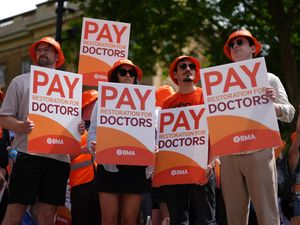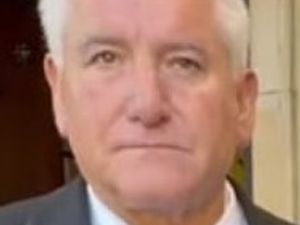Watson shock at Gov't gambling admission
Tom Watson has launched a review into problem gambling – as he hit out at the Government's 'shocking' failure to address the issue.
Labour's deputy leader said it was time the country started treating gambling addiction as a mental health problem.
He said it was vital the NHS was equipped to deal with it, but expressed astonishment at Government admissions that it does not know how many problem gamblers are currently being treated.
The Department of Health also conceded that it had no idea how much gambling addiction was costing the UK, and that Health Secretary Jeremy Hunt, and Culture Secretary Karen Bradley, had never discussed the issue.
West Bromwich East MP Mr Watson, who is Labour's shadow culture secretary, said: "We know there is a growing epidemic of gambling addiction, so it’s shocking that the Government has no idea how many people are receiving treatment, or how much it’s costing.
"It’s time we started seeing gambling addiction as a mental health problem, not a moral failing, and made sure that proper NHS provision is in place for it."
Mr Watson's review of how the NHS treats addiction is part of a series of policy proposals that includes a crackdown on bookmakers and online casinos.
Labour has pledged to introduce a compulsory levy on gambling companies to fund treatment, and backed slashing the maximum stake on controversial fixed-odds betting terminals to £2.
Mr Watson has also said the party would explore a ban on gambling companies advertising on football shirts in an effort to address the 'normalisation' of sports betting among children.
"Labour’s review will ask the questions the Government is failing to ask, so that the next Labour government can act to give people whose lives are blighted by gambling addiction the treatment they need,” he said.
A survey released by the Gambling Commission warned that the number of people with a serious gambling habit had risen to 430,000, with a further 1.6 million at risk of developing a problem.
Government Health Minister Steve Brine said the Health Survey for England in 2015 showed 0.9 per cent of over-16s were classified as problem gamblers.
He said that services provided by the IAPT (Improving Access to Psychological Therapies) programme could potentially treat 'common mental health disorders such as depression and anxiety which problem gamblers may present with'.
He also said there were a range of service available for problem gamblers.
Labour, which oversaw the deregulation of gambling when in government in 2005, is considering pushing more specialist NHS clinics for problem gamblers.
There is currently just one such establishment in England and Wales, in London.
Details of Labour's review can be found at www.tom-watson.com/gambling





